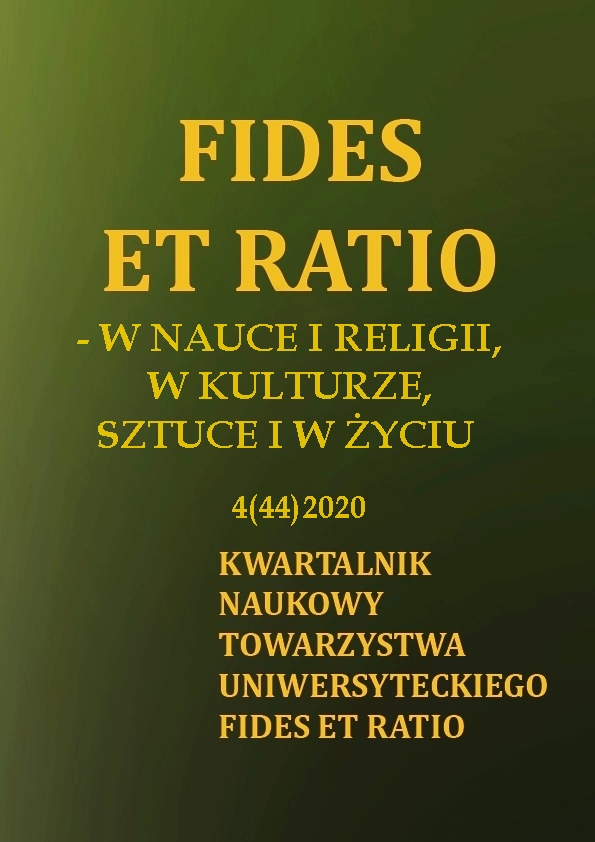Abstract
Abstract: The aim of the article is to show the changes in the behavior of young people in the context of generational changes, with an emphasis on the approach of the Australian social researcher and futurist Mark McCrindle. Particular attention was paid to the Z and Alpha generations, whose representatives use digital media in many areas of life. The direction of theoretical analyzes was determined by two questions: how do digital technologies determine the lives of the youngest generations and what does it mean for the activities of educators? The article is based on literature studies (analysis of existing documents). The conclusions do not provide unambiguous answers, however, they indicate the importance of getting to know the young generation, accepting its transformation, pointing to alternative forms of functioning in the real world, satisfying the need for community and belonging.
References
Behets, D. (2001). Value Orientations of Physical Education Preservice and Inservice Teachers, Journal of Teaching in Physical Education, 20 (2), 144-154, https://doi.org/10.1123/jtpe.20.2.144.
Brzozowski, P. (1995). Skala Wartości Schelerowskich — SWS (Schelerian Values Scale SWS), Warsaw: PTP.
Demel, M. (1973). Szkice krytyczne o kulturze fizycznej, (Critical sketches on physical culture), Warsaw: Sport i Turystyka.
Elżanowska, H. (2012). Międzypokoleniowa transmisja wartości w rodzinie (Intergenerational transmission of values in the family), (in:) O. Gorbaniuk,
O. Kostrubiec- Wojtachnio, B. Musiał, & D.Wiechetek (eds.), Studia z Psychologii w KUL, 97-114, Lublin: KUL. Available at:https://www.kul.pl/files/55/Stud_psych_18-2012_Elzanowska.pdf, (dostęp: 02.09.2020).
Evans, J. (2012). Physical Education as porn! Physical Education and Sport Pedagogy, 18 (1), 75-89, https://doi.org/10.1080/17408989.2011.631002.
Garrett, R., Wrench, A. (2007). Physical experiences: primary student teachers' conceptions of sport and physical education, Physical Education and Sport Pedagogy, 12 (1), 23-42, https://doi.org/10.1080/17408980601060234.
Görgüt, I., Tutkun, E. (2018). Views of Physical Education Teachers on Values Education, Universal Journal of Educational Research, 6 (2), 317-332.
Gullu, M. (2016). Examining the Values of Students in the Physical Education and Sport Departments, Educational Research and Reviews, 11(19), 1812-1822. Available at: https://eric.ed.gov/contentdelivery/servlet/ERICServlet?accno=EJ1117285.
Harvey, S., Kirk, D., O’ Donovan T.M. (2011). Sport Education as a pedagogical application for ethical development in physical education and youth sport, Sport, Education and Society, 19(1), 41-62, https://doi.org/10.1080/13573322.2011.624594.
Jung, H., Choi, E. (2014). The importance of indirect teaching behaviour and its educational effects in physical education, Physical Education and Sport Pedagogy, 21 (2), 121-136.
Kirk, D. (2013). Educational Value and Models-Based Practice in Physical Education, Educational Philosophy and Theory, 45 (9), 973-986.
Klomsten, A.T., H.W. Marsh, Skaalvik, E. M.(2005). Adolescents’ Perceptions of Masculine and Feminine Values in Sport and Physical Education: A Study of Gender Differences, Sex Roles, 9/10, 52, 625–636. Available at: https://link.springer.com/article/10.1007/s11199-005-3730-x, (dostęp: 02.09.2020).
Koh, K.T., Ong, Sh. W., Camiré, M. (2014). Implementation of a values training program in physical education and sport: perspectives from teachers, coaches, students, and athletes, Physical Education and Sport Pedagogy, 21 (3), 295-312.
López-Pastor, V.M., Kirk, D., Lorente-Catalán, E., MacPhail, A., Macdonald, D. (2012). Alternative assessment in physical education: a review of international literature, Sport, Education and Society, 18 (1), 57-76, https://doi.org/10.1080/13573322.2012.713860.
Nikiel, T. (2009). Interpretacja wartości a rozumienie ideału dobra moralnego (Interpretation of values and understanding of the ideal of moral good), Studia Psychologica, 9, 201-210.
Nowocień, J. (2014). Olimpizm i fair play jako źródło wartości w nowoczesnym procesie edukacji (Olympism and fair play as a source of value in the modern education process), (in:) K. Hądzelek, M. Rejf, H. Zdebska-Biziewska & R. Żukowski (eds.), Czysta gra (Fair Play), 198-202, Cracow: Fall.
Ostrowska, K. (2004). W poszukiwaniu wartości, ([In search of value), Kraków: Rubikon.
Shaw, K. (2006). Traditional society and modern teaching, TeacherDdevelopment, 2 (2): 179-191, https://doi.org/10.1080/13664539800200053.
Smykowski, B. (2004). Wczesna dorosłość- szanse rozwoju, (Early adulthood - development opportunities), Remedium, 2 (132), 4-5.
Sofo, S., Curtner- Smith, M.D. (2010). Development of preservice teachers' value orientations during a secondary methods course and early field experience, Sport. Education and Society, 15(3), 347-365, https://doi.org/10.1080/13573322.2010.493314.
Spławska, J. (2008). Poziom rozwoju rozumowania moralnego w świetle badań metodą Lawrence’a Kohlberga (The level of development of moral reasoning in the light of research by Lawrence Kohlberg's method), Przegląd Pedagogiczny, 2, 107-120.
Timken, G.L., van der Mars, H. (2009). The effect of case methods on preservice physical education teachers' value orientations, Physical Education and Sport Pedagogy, 14 (2), 169-187, https://doi.org/10.1080/17408980701718459.
Wallhead, T.L., A.C. Garn, Vidoni C. (2012). Sport Education and social goals in physical education: relationships with enjoyment, relatedness, and leisure-time physical activity, Physical Education and Sport Pedagogy, 18 (4), 427-441.
Zhu, X., Ennis, C.D., Chen, A. (2010). Implementation challenges for a constructivist physical education curriculum, Physical Education and Sport Pedagogy, 16 (1), 83-99, https://doi.org/10.1080/17408981003712802.

